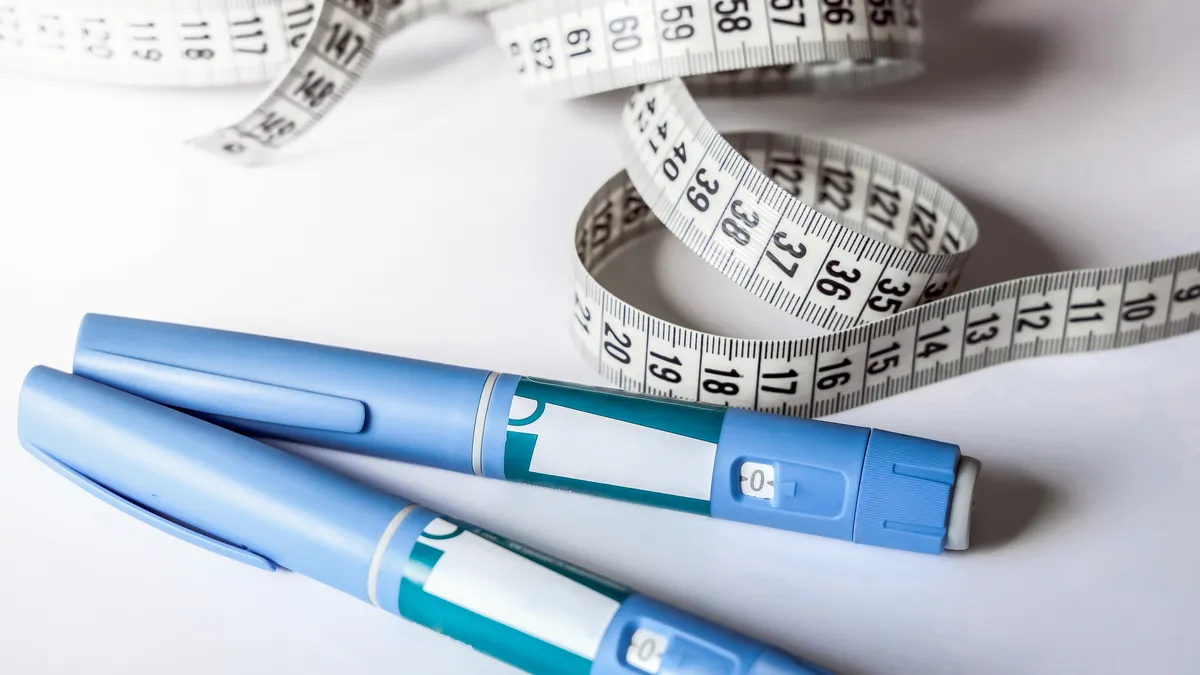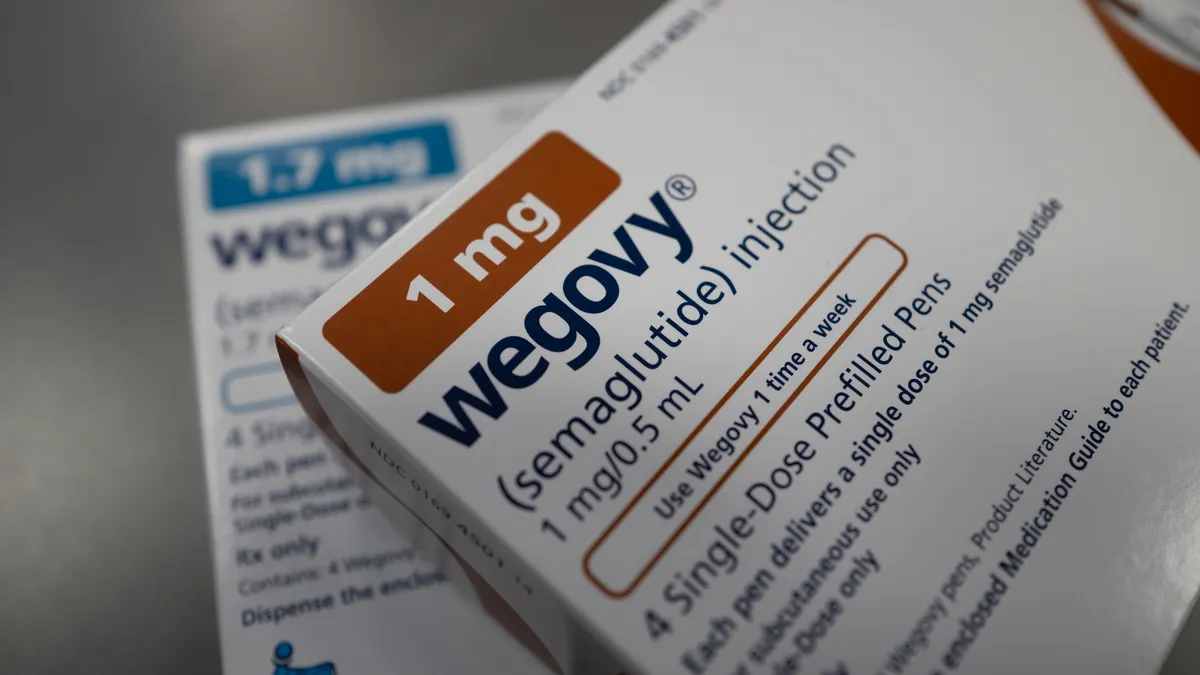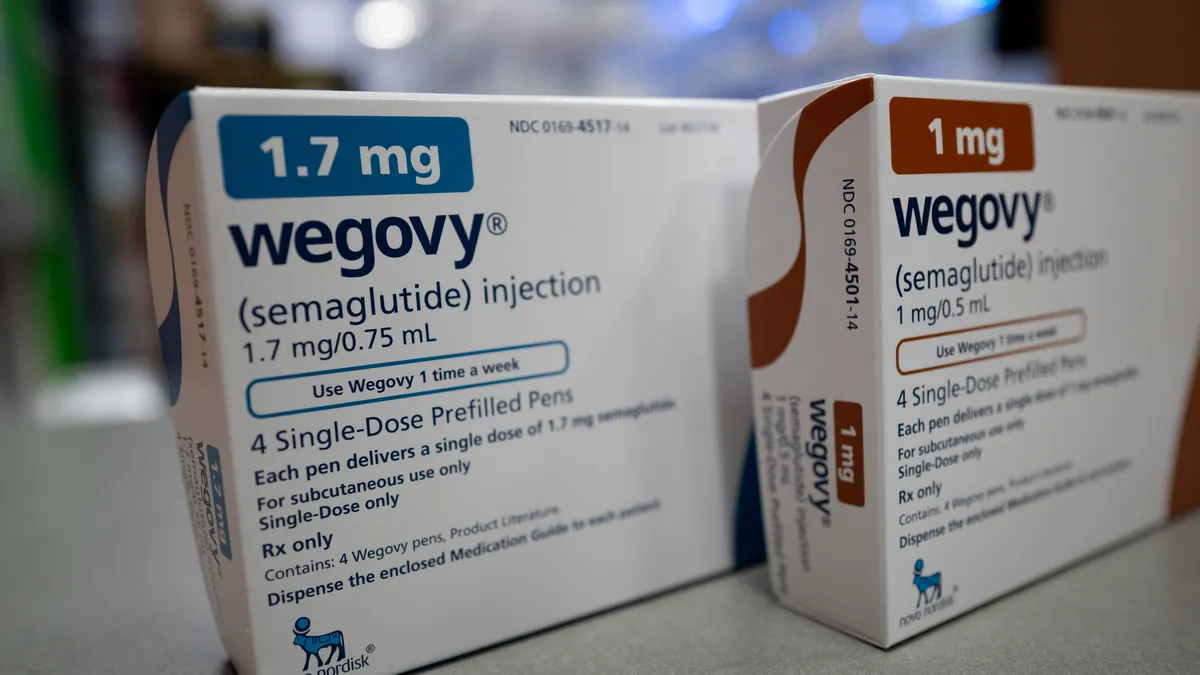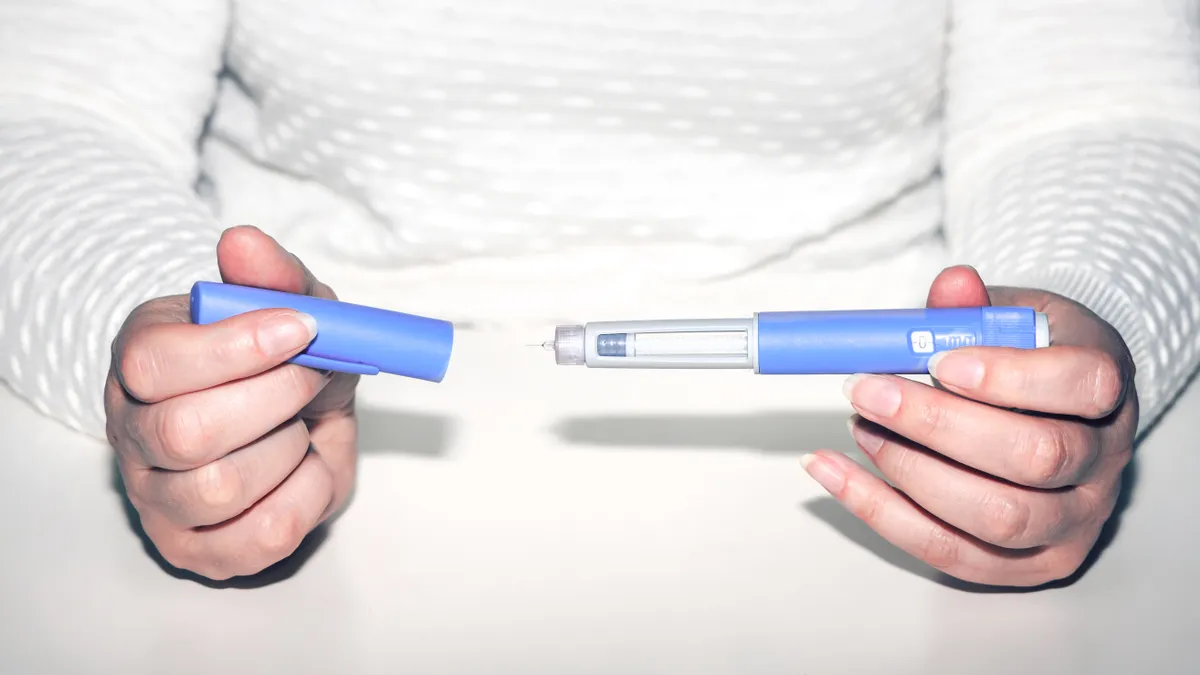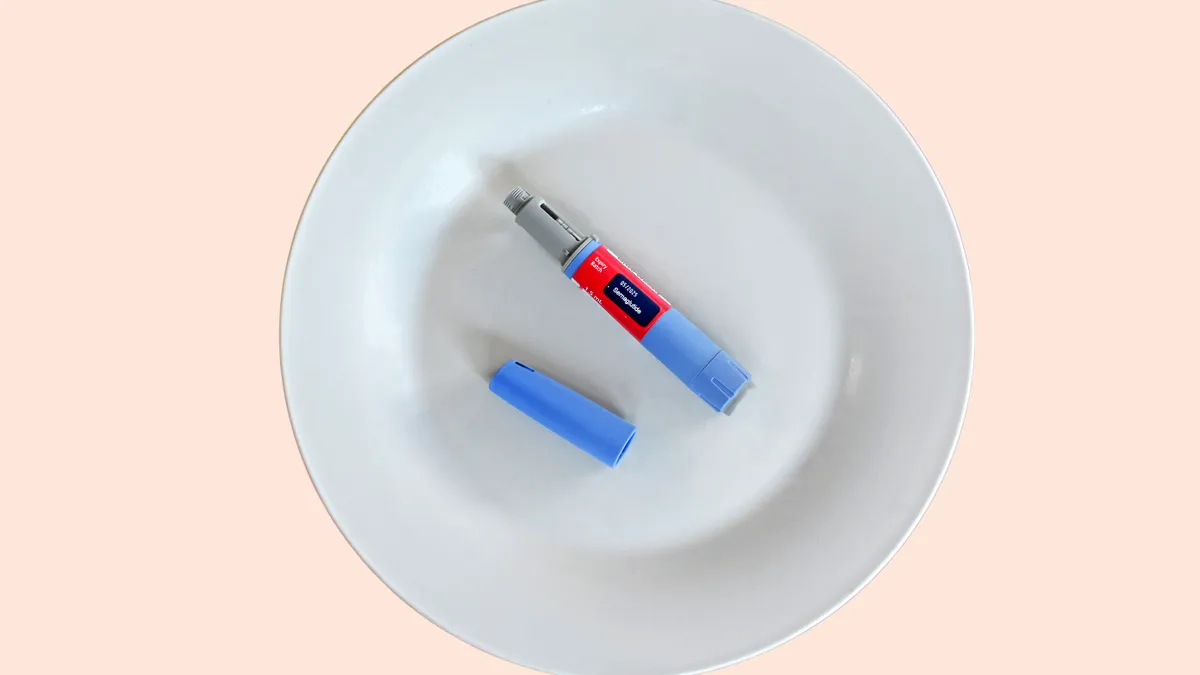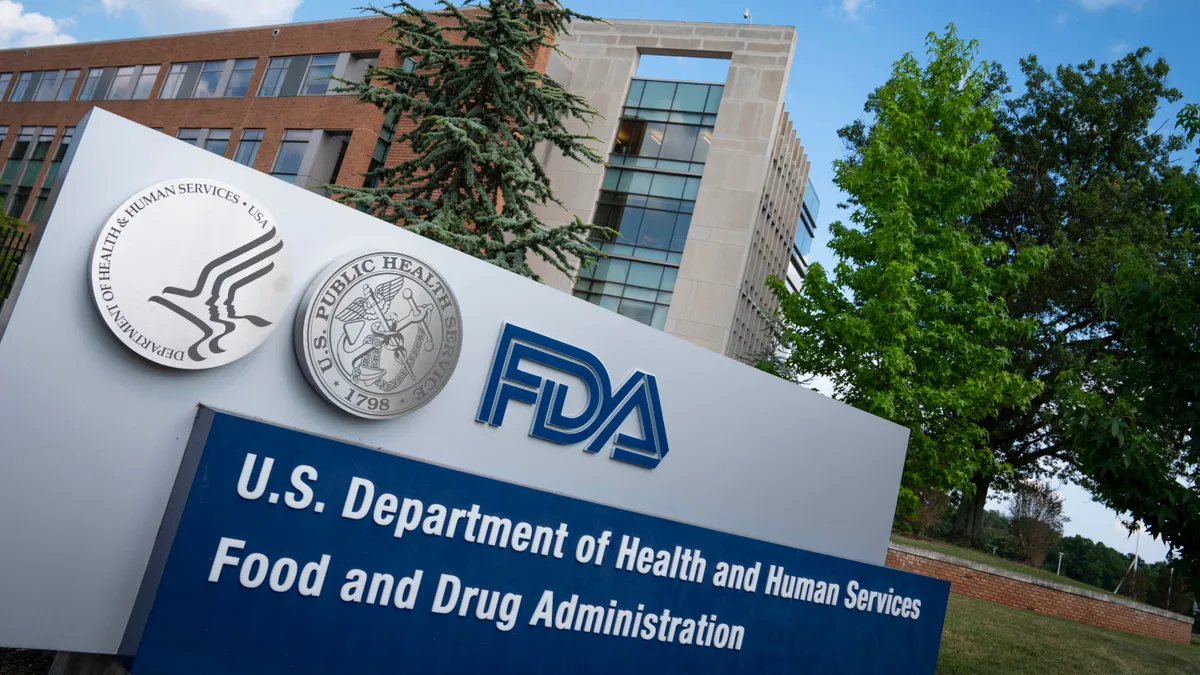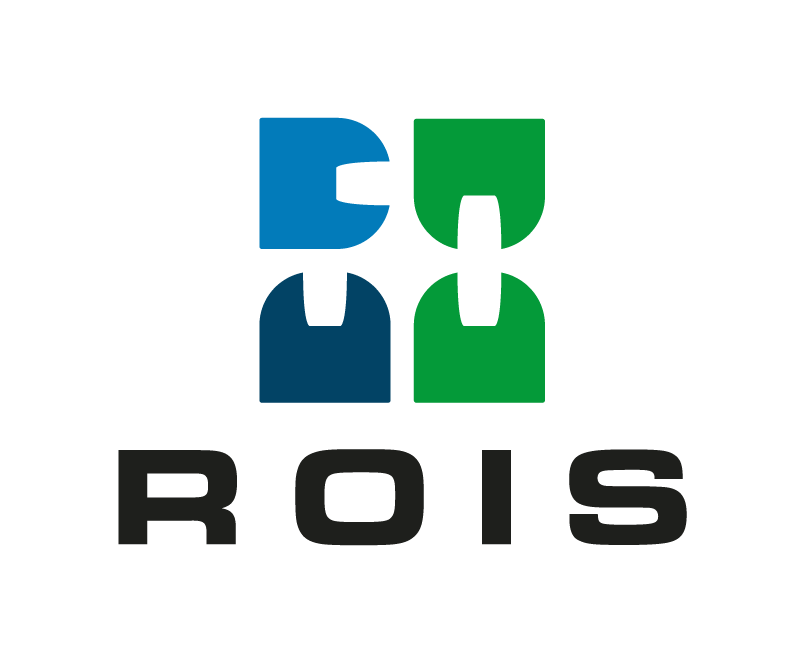Dive Brief:
- Eli Lilly on Tuesday said it is ready to ask the Food and Drug Administration for approval of its GLP-1 pill orforglipron after the drug met the main weight loss goal in a Phase 3 trial in people with diabetes and obesity.
- In the trial, a high dose of orforglipron helped study participants lose on average 11% of their body weight over 72 weeks, or 8 percentage points more than people given a placebo. The weight loss in people with diabetes and obesity — a hard-to-treat group — looks similar to the 12% weight loss seen in people with obesity alone.
- Lilly trails obesity rival Novo Nordisk in seeking FDA approval of a GLP-1 pill for obesity by at least four months as the race to launch alternatives to injectables like Novo’s Wegovy and Lilly’s Zepbound heats up. Lilly investors were disappointed by orforglipron’s recent results in obesity, leading Wall Street analysts to slash sales expectations.
Dive Insight:
Lilly has now completed the third Phase 3 trial necessary to support its FDA application. Besides the obesity Phase 3, Lilly also published results from a 40-week trial in people with diabetes and inadequate blood-sugar control that hinted at effective weight loss benefits.
The Indianapolis-based company’s fortunes have turned in 2025 largely on the data from orforglipron, especially as oral GLP-1 rivals like Pfizer have fallen away and left Lilly and Novo in the lead. In addition to the worries about the drug’s weight loss effectiveness, Wall Street analysts have raised concerns about the rate of trial participants who discontinue testing because of side effects.
People randomized to take orforglipron in the latest trial received one of three different doses: 6, 12 or 36 milligrams daily. Participants on the 6 milligram and 12 milligram doses also had greater average weight loss of 6% and 8% over placebo, respectively. People on orfoglipron reached weight loss thresholds of 10% and 15% of their body weight at higher rates, too.
However, more people taking orforglipron dropped out of the trial because of side effects: 6% in the 6 milligram treatment group and 11% in both the 12 and 36 milligram groups, compared with 5% of those given placebo.
The discontinuation rates for orforglipron were higher than those for Wegovy in a trial in people with diabetes and obesity, raising questions about whether people will be able to tolerate a daily pill, Leerink Partners analyst David Risinger wrote in a note to clients.
However, the weight loss benefit in these same patients may be more encouraging to investors than in the obesity-only trial. Lilly’s shares climbed 4% in morning trading.
In taking orforglipron to the FDA, Lilly also potentially has a better commercial profile because of its specific testing in people with obesity and diabetes. Novo’s submission of a 25 milligram oral pill version of Wegovy asks for approval in people with obesity and one or more complications of the disorder, like heart disease, but people with diabetes were excluded from clinical trials.
























